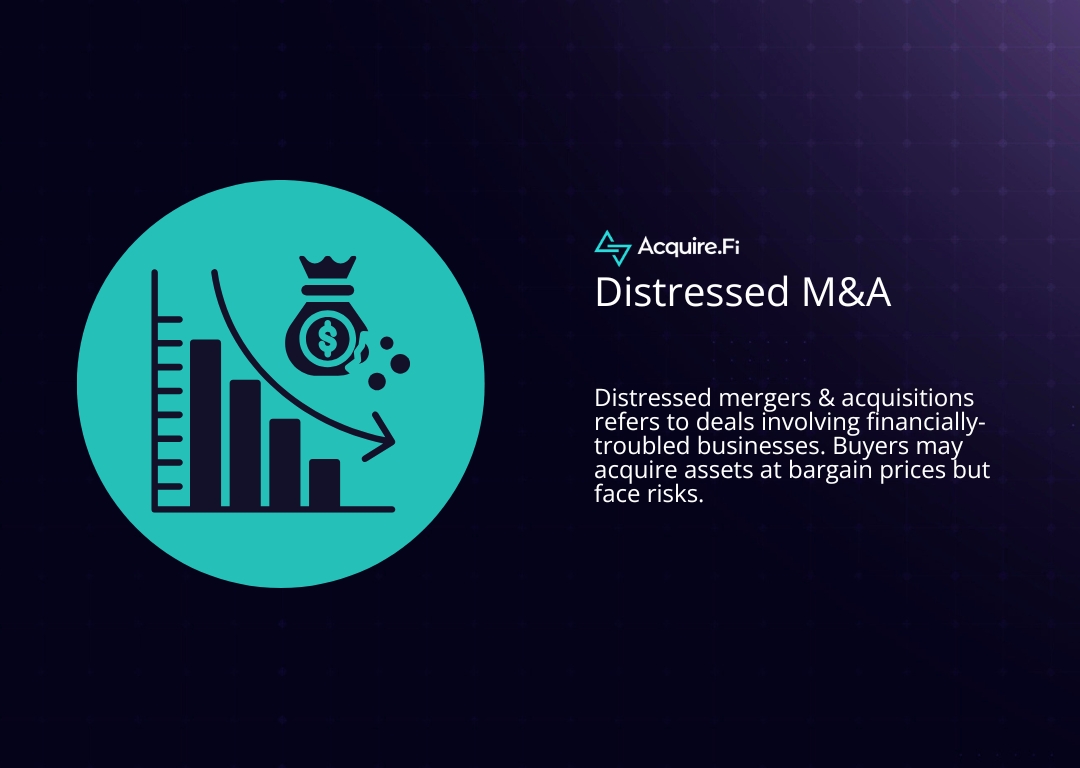Creating a Winning Hedge Fund Business Plan
The hedge fund industry is a rapidly growing, highly competitive space, and in order to succeed, it's essential to have a solid business plan in place. From understanding the industry's key players and recent trends to defining your investment strategy and building a strong management team, there are many factors to consider when developing a winning hedge fund business plan.
Understanding the Hedge Fund Industry
Before diving into the specifics of your hedge fund business plan, it's important to have a firm grasp of the industry itself. The hedge fund market is made up of a diverse range of players, including institutional investors, high net worth individuals, and family offices.
One of the key players in the hedge fund world is the hedge fund manager. These individuals are responsible for managing the fund's investments and making decisions about where to allocate capital. They often have extensive experience in finance and investing, and may have previously worked at investment banks or other financial institutions.
Another important player in the hedge fund ecosystem is the prime broker. Prime brokers provide a range of services to hedge funds, including financing, securities lending, and trade execution. They play a critical role in helping hedge funds manage their operations and execute their investment strategies.
Key Players in the Hedge Fund World
Understanding the individuals and organizations that make up the hedge fund industry is crucial for success. From hedge fund managers to prime brokers, each player has a unique role to play in the ecosystem and can greatly impact the success of your business.
Family offices are another important player in the hedge fund world. These are private wealth management firms that manage the assets of wealthy families. They often invest in hedge funds as a way to diversify their portfolios and generate strong returns.
Institutional investors, such as pension funds and endowments, are also major players in the hedge fund market. These organizations invest large amounts of capital in hedge funds, and their decisions can have a significant impact on the overall performance of the industry.
Types of Hedge Funds
There are many different types of hedge funds, each with its own investment strategy and goals. Whether you're considering a long-short equity fund or a quantitative fund, it's important to carefully consider your options and choose a strategy that aligns with your strengths and goals.
One popular type of hedge fund is the event-driven fund. These funds invest in companies that are undergoing significant changes, such as mergers, acquisitions, or bankruptcies. By taking advantage of these events, event-driven funds can generate strong returns for their investors.
Another type of hedge fund is the macro fund. These funds invest in a wide range of assets, including currencies, commodities, and bonds. They often take a global perspective, making bets on macroeconomic trends and events.
Recent Trends and Developments
The hedge fund industry is constantly evolving, with new trends and developments emerging each year. From changes in regulation to advances in technology, staying up-to-date on the latest trends and developments is key to success in this fast-paced industry.
One recent trend in the hedge fund world is the rise of quantitative investing. This approach uses mathematical models and algorithms to make investment decisions, rather than relying on human intuition. As computing power and data analytics have improved, quantitative investing has become increasingly popular among hedge funds.
Another trend is the growing interest in environmental, social, and governance (ESG) investing. Many hedge funds are now incorporating ESG factors into their investment decisions, as investors become more focused on sustainability and social responsibility.
Overall, the hedge fund industry is a dynamic and complex ecosystem that requires a deep understanding of its players, strategies, and trends. By staying informed and adapting to changes in the market, you can position yourself for success in this exciting and rewarding field.
Defining Your Hedge Fund's Investment Strategy
Starting a hedge fund can be an exciting and lucrative venture, but it requires careful planning and strategy. One of the most important steps in creating a successful hedge fund business plan is defining your investment strategy. This involves identifying your niche, developing a unique investment approach, and implementing risk management and diversification strategies.
Identifying Your Niche
Identifying a niche is crucial in the hedge fund industry. With so many hedge funds in the market, a clearly defined niche can help you stand out from the competition. Your niche could be a particular market sector, such as technology or healthcare, or a unique approach to risk management, such as using artificial intelligence or machine learning algorithms.
It's important to research and analyze the potential profitability and market demand of your chosen niche. You should also consider the competition and identify ways to differentiate your hedge fund from others in the market.
Developing a Unique Investment Approach
Once you've identified your niche, it's crucial to develop a unique investment approach that aligns with your strengths and goals. Your investment approach should be tailored to your niche and set you apart from the competition.
For example, if your niche is in the technology sector, your investment approach could focus on early-stage startups with disruptive technologies. Or, if your niche is in the healthcare sector, your investment approach could be centered around companies developing innovative medical treatments.
It's important to have a thorough understanding of your investment approach and ensure it's aligned with your hedge fund's overall objectives. Your investment approach should also be flexible and adaptable to changing market conditions.
Risk Management and Diversification
No matter what your investment strategy, implementing strong risk management and diversification strategies is essential for success in the hedge fund industry. By spreading your investments across a variety of asset classes and using advanced risk management techniques, you can greatly reduce your exposure to market volatility and minimize potential losses.
One effective way to manage risk is through portfolio diversification. This involves investing in a variety of assets, such as stocks, bonds, and commodities, to spread risk across different markets and industries. Another risk management technique is using stop-loss orders, which automatically sell an investment if it falls below a certain price.
It's important to regularly evaluate and adjust your risk management and diversification strategies to ensure they're effective and aligned with your hedge fund's overall objectives.
In conclusion, defining your hedge fund's investment strategy is a critical step in creating a successful business plan. By identifying your niche, developing a unique investment approach, and implementing strong risk management and diversification strategies, you can increase your chances of success in the competitive hedge fund industry.
Building a Strong Management Team
While having a solid investment strategy is important, building a strong management team is equally crucial. From defining roles and responsibilities within your hedge fund to hiring the right talent and creating a collaborative work environment, there are many factors to consider when building a winning team.
Roles and Responsibilities within a Hedge Fund
Defining clear roles and responsibilities within your hedge fund is essential for ensuring that everyone is working together towards a common goal. Each team member should not only have a clear understanding of their responsibilities but also have a sense of ownership and accountability for their work. This can be achieved by setting clear performance metrics and goals, and regularly reviewing progress and providing feedback to team members.
Another important aspect of defining roles and responsibilities is ensuring that there is a clear chain of command and decision-making process in place. This helps to avoid confusion and ensures that everyone is working towards the same objectives. It also allows for more efficient and effective decision-making, which is crucial in the fast-paced world of hedge fund management.
Hiring the Right Talent
When it comes to hiring the right talent for your hedge fund, it's important to look beyond the resume and focus on finding candidates who share your values and vision for the firm. This can be achieved by conducting thorough interviews and assessments that not only evaluate a candidate's technical skills but also their fit within the team and their ability to work collaboratively.
It's also important to consider the diversity of your team when hiring. Research has shown that diverse teams are more innovative and perform better than homogeneous teams. By hiring people from different backgrounds and with different perspectives, you can create a more dynamic and creative work environment that is better equipped to navigate the complex and ever-changing world of finance.
Creating a Collaborative and Efficient Work Environment
Creating a collaborative and efficient work environment is essential for keeping your team motivated and productive. One way to achieve this is by fostering open communication and encouraging feedback and ideas from all team members. This not only helps to build trust and respect within the team but also allows for the sharing of knowledge and expertise, which can lead to better decision-making and problem-solving.
Another important aspect of creating a collaborative work environment is implementing the latest technological tools and processes. This can include everything from project management software to automated trading algorithms. By leveraging technology, you can streamline workflows and reduce the risk of errors or delays, which is crucial in the fast-paced world of hedge fund management.
Overall, building a strong management team is essential for success in the hedge fund industry. By defining clear roles and responsibilities, hiring the right talent, and creating a collaborative and efficient work environment, you can build a team that is not only capable of navigating the complex and ever-changing world of finance but also poised for long-term success.
Legal and Regulatory Considerations
Finally, it's essential to carefully consider the legal and regulatory considerations that come with running a hedge fund. From deciding on your hedge fund structure and ensuring compliance with reporting requirements to navigating international regulations, there are many complex issues to consider.
Hedge Fund Structure and Registration
Choosing the right hedge fund structure and ensuring registration with the appropriate regulatory authorities is a crucial step in starting and running a successful hedge fund. Careful consideration of the legal, tax, and regulatory implications of each option is essential for making an informed decision.
Compliance and Reporting Requirements
Staying compliant with the many reporting and regulatory requirements that come with running a hedge fund is a complex and time-consuming process. From maintaining detailed records of your investments to filing regular reports with regulatory authorities, it's important to stay organized and up-to-date on the latest requirements.
Navigating International Regulations
Finally, for hedge funds that operate internationally or have investments in foreign markets, navigating the complexities of international regulations can be a major challenge. Careful research and a deep understanding of regulatory requirements in each market are essential for avoiding legal and financial risk.
Conclusion
With a solid understanding of the hedge fund industry, a clear investment strategy, a strong management team, and careful attention to legal and regulatory considerations, you can create a winning hedge fund business plan that sets you up for success in this highly competitive space.














.webp)